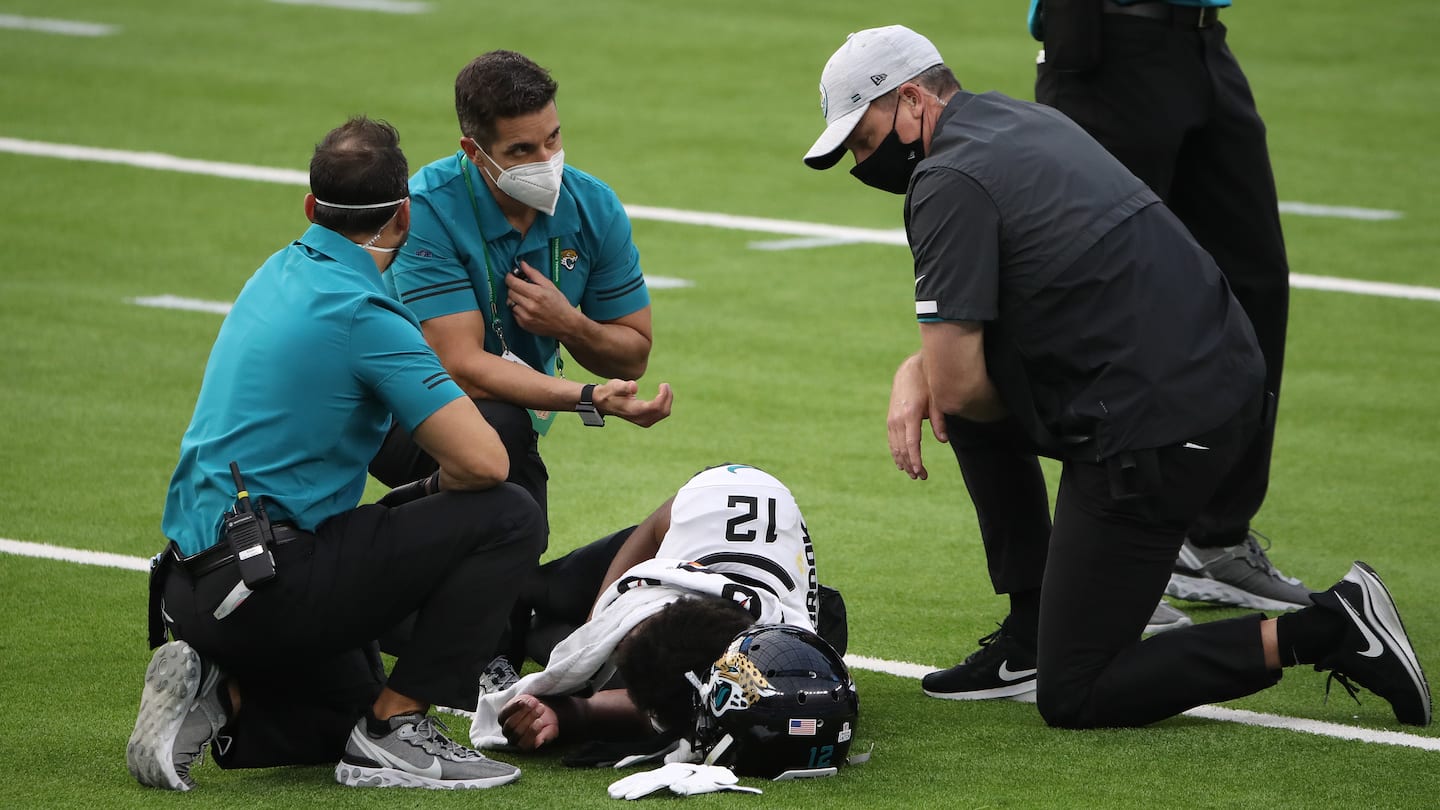If the Supreme Court tosses Obamacare, football players will feel the loss

But the majority of their teammates and opponents won’t earn nearly as much — in their entire careers. They won’t play as long, either. This was Prescott’s fifth season; Smith’s in his 16th. The average career for an NFL player is around three seasons. Those who don’t make it that far also fail to get vested in the players’ union. So they’re nearly on their own if they suffer damage that lingers forever. And they will.
As DeMaurice Smith told a CBS News audience on the morning of the Super Bowl in 2017, “We have a 100 percent injury rate in the National Football League. And so every player leaves the National Football League with a preexisting condition.”
Smith, the executive director of the NFL Players Association, was responding to a question from then-“Face the Nation” host John Dickerson about President Trump’s overtures to end the Obama administration’s Affordable Care Act, whose most popular provision forbids insurers from refusing coverage or charging exorbitant rates to consumers with health problems from their past. As football players deal with a slew of such conditions, Smith made clear his membership was worried.
That was then. By Tuesday, Smith’s concern should be a reality. On Monday night, the Senate confirmed Amy Coney Barrett, a favorite of social conservatives, to replace Ruth Bader Ginsburg, a hero of progressives, on the Supreme Court. Barrett is anticipated to align with the high court’s five other conservatives. One of the first major issues on which she could leave an imprint is the fate of the ACA, with the court projected to hear arguments as early as Nov. 10 on a lawsuit initiated by a coalition of Republican state attorneys general who want the law invalidated.
This is Exhibit A of why athletes should be political — and not just for events in their immediate view. Standing up for social causes is noble. Just as Black athletes advocating for racial justice this summer had profound resonance, so too would an athlete workforce standing up for the increased rights of laborers.
They shouldn’t forget that they play for owners who have donated mostly to the very Republican politicians who backed the right-leaning imbalance Barrett is expected to bring to the court. Players should create their own political action committees or other organizations to financially back politicians who will protect them rather than do them harm.
“Every NFL player should be concerned if the ACA is overturned,” Smith told me this month.
If you’ve ever been to an NFL alumni gathering, or, worse yet, funeral, you can see why Smith is concerned — and why his membership should be even more. So many former players move slowly. They limp. They complain of this ailment and that.
“This is not an easy decision,” he said. “Honestly, it’s the hardest decision of my life. But it is the right decision for me. For the last four years or so, I’ve been in this cycle of injury, pain, rehab, injury, pain, rehab, and it’s been unceasing, unrelenting, both in-season and offseason, and I felt stuck in it. The only way I see out is to no longer play football.”
The ex-players so often mention friends who couldn’t be there because they’re beginning to experience cognitive issues, if not chronic traumatic encephalopathy itself. A 2018 study found more than a quarter of retired NFL players used painkillers and almost half of them didn’t use the drugs as prescribed.
And this year, NFL players — and college football players, who have little to no access to long-term insurance — got saddled with another potential malady that could stay with them into the future: covid-19. An online report in September from JAMA Cardiology found that some athletes who contracted the virus later suffered inflammation of the heart muscle called myocarditis, a problem that can linger with some serious repercussions. That is in addition to what are being called long-haul ramifications of the infection, which can include breathing problems, fatigue and mental struggles.
NFL players do get health-care coverage for the first five years following retirement. After that, they move to a health reimbursement account that takes care of expenses as long as the account is in the black.
College players are not, of course, immune from suffering debilitating injuries. But it’s up to the individual universities to pick up the medical premiums for their athletes.
Schools talked a few years agoabout providing some long-term health coverage for former athletes who suffered haunting injuries. And when they did, they focused on extending coverage to age 26, which would be consistent with a provision in the ACA.
But that didn’t reach fruition, and the provision of the ACA allowing offspring to stay on their parents’ insurance until 26 could now be in danger, too. Given that college athletes aren’t deemed employees, as they should be, they can’t file for workers’ compensation down the line, either. At least NFL players have that option for work-related disablements. But that relief is dependent upon the state in which they seek workers’ comp, and a number of state legislatures have tried to limit professional athletes’ access to their coffers.
So, the ACA is a great salve for former football players — or, if a newly conservative court with Barrett tosses the law, a tremendous loss.






